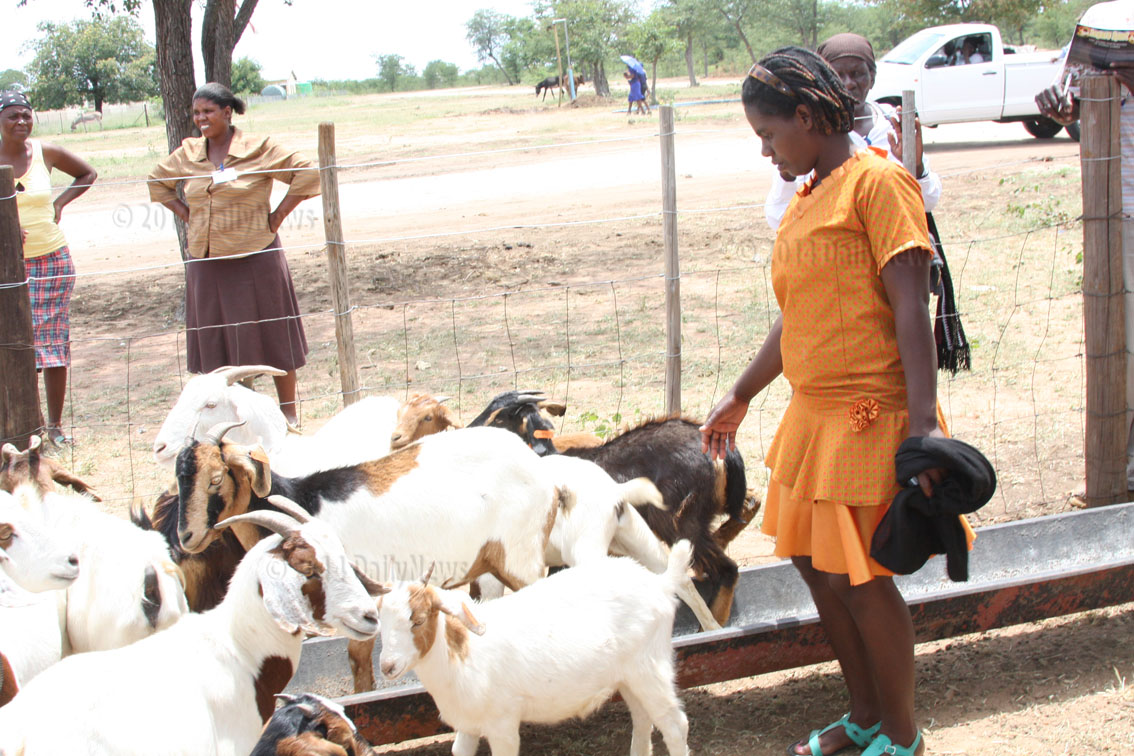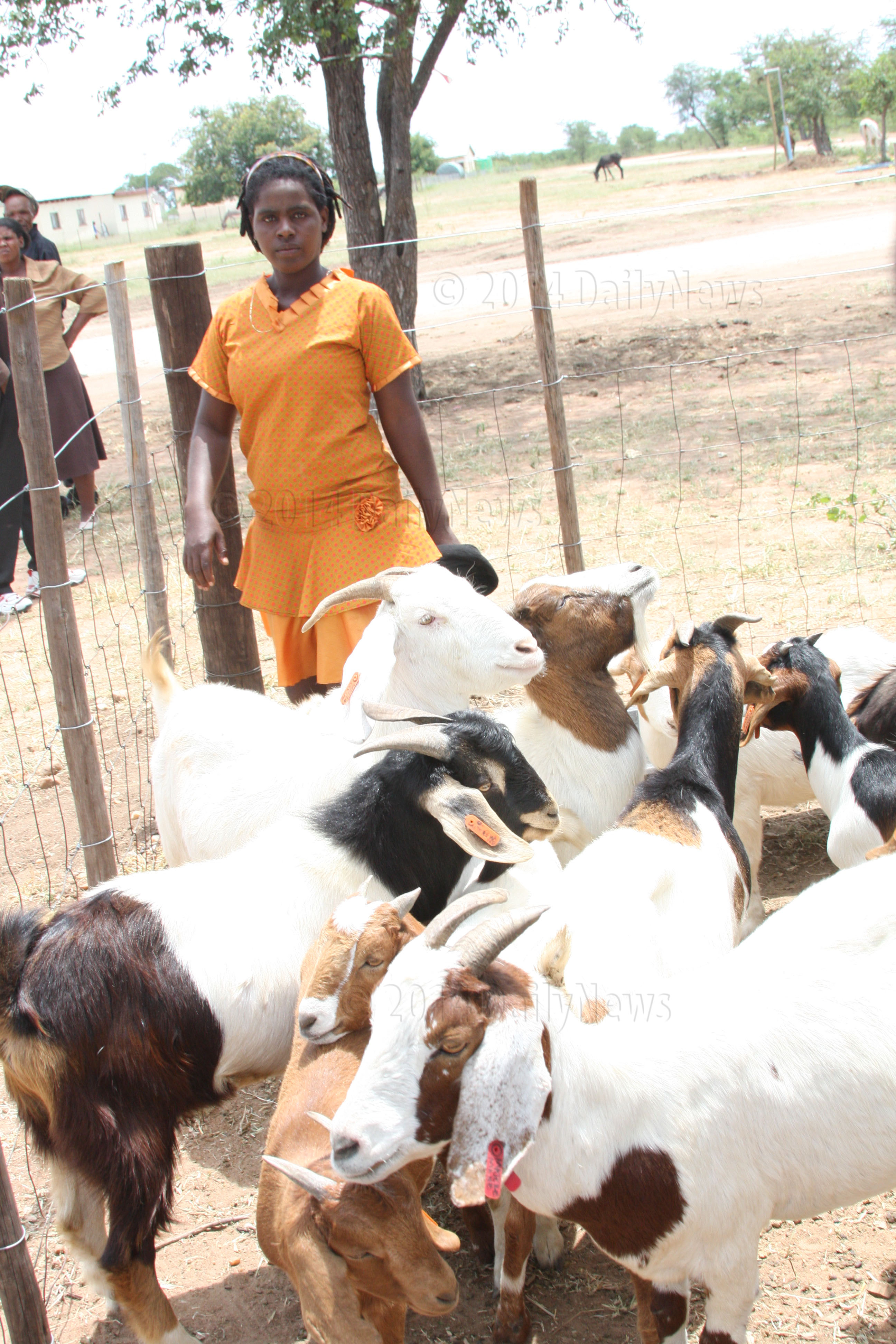Small stock beneficiary hopeful
04 Mar 2014
For Ms Onalenna Majeremane (31) of Jamataka, challenges in life should not be seen as a hindrance but rather as tests of character and endurance.
She is not saying these words out of the comfort zone, she has been through it all and knows what she is talking about. Early in her teens, Ms Majeremane was forced to leave school while doing standard seven and had to stay at home with no hope for a better life.
Despite the hurdles that lay ahead of her, she soldiered on helping her mother at the cattle post while working at Ipelegeng to put food on the table.
The mother of two is one of the more than 1 000 beneficiaries of the poverty eradication programme who took part in the Jamataka poverty eradication workshop which ended on March 1. She has been given 11 goats: 10 does and a buck, which were handed to her in February this year. She has not looked back since then.
While working at Ipelegeng in 2012, she explains that social workers came to her village where they were given forms to fill and choose packages which they were interested in.
“Growing up I spent a lot of my time at the cattle post in Kgoronyane near Mabesekwa where I fell in love with small stock, especially goats and this prompted me to choose something that I am familiar with,” she noted.
However, she explained that while a year passed before she could get her goats she never lost hope and always believed that her chance would come.
Ms Majeremane attended a training course in Mathangwane for four days doing both theory and practicals on the management of small stock. She mentioned that during training they were taught about care and management of goats and the challenges that are found in this industry.
One thing that she says she has realised is that goats need great care, especially concerning the provision of water and medicine. Vaccination, she said, is one of the most important practices in goat production and she said that officers always underscored this during training.
One of her challenges, she said, was that she was given goats at a time when it was raining heavily, hence she had to delay taking them to the cattle post.
Ms Majeremane had praise for officers who frequent them to check on the progress of her goats and said that this made her to work even harder knowing fully well that she had the support of the authorities. “I know that there will be challenges in this project but I have been through a lot and I count on the support of my family to see me through,” she highlighted.
One of the things that she thinks would help her in her project, she noted, is to acquire shepherd dogs which she wants to involve to protect her goats against predators.
In two years’ time, Ms Majeremane said that she wanted to see herself as a model goat farmer who would inspire other young people to follow this route.
In her home village of Jamataka, she explained, poverty was rife and she thanked government through the poverty eradication programme for coming to their rescue. “There are many youth in Jamataka who only depend on Ipelegeng and I wish the government could enroll more of them in the programme so that they could improve their livelihoods.
However, she observed that one thing that worried her was that some of the beneficiaries who have been funded were struggling to penetrate the market and called on those responsible for the programme to ensure that after producing their goods, the beneficiaries have a ready market.
Six Jamataka residents, two of them youth, have been given goats. ENDS
Source : BOPA
Author : Puso Kedidimetse
Location : FRANCISTOWN
Event : Feature article
Date : 04 Mar 2014








